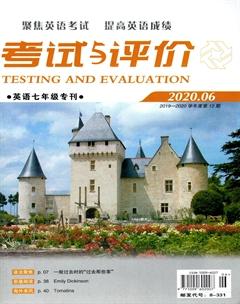一般过去时的“过去那些事”
张新峰


一、一般过去时“变身术”——构成和句型
【课本原句】
1. —Were the strawberries good? 草莓好吃吗?
—Yes, they were./ No, they weren't. 是的,它们好吃。/ 不,它们不好吃。
2. —Did you see any cows? 你看见奶牛了吗?
—Yes, I did. I saw quite a lot. 是的,我看见了相当多。
3. —Did you go to the zoo? 你去动物园了吗?
—No, I didn't. I went to a farm. 不,我没有。我去了农场。
【结构透视】
一般过去时表示过去某个时间发生的动作或存在的状态。一般过去时中谓语动词要用动词的过去式。现在就让我们一起看看一般过去时的变身术。
变身一: 肯定句→否定句
1. 谓语为was / were时
连系动词be的过去式有两种形式was和were, 其否定形式是在was或were后加not。如:
They were in New York last week.→They weren't in New York last week.
2. 谓语为行为动词时
句中谓语为行为动词的过去式时,变否定句时需借助于didn't 来否定,didn't 后原来的行为动词要使用动词原形。如:
Mike went to the farm last Sunday. →Mike didn't go to the farm last Sunday.
变身二:陈述句→一般疑问句
1. 含有动词was / were的句型
将was或were提前放在句首, 并大写第一个字母,末尾加问号。肯定回答用:Yes, 主语+was / were。否定回答用:No, 主语+wasn't / weren't。如:
—Were you late yesterday? 你昨天迟到了吗?
—Yes, I was. / No, I wasn't. 是的,我迟到了。/ 不,我没有迟到。
2. 含行为动词过去式的句型。
在句首加助动词did,句中的行为动词要变为原形。肯定回答用:Yes, 主语+did;否定回答用:No, 主语+didn't。
—Did you go to the park last Sunday? 你上周日去公园了吗?
—Yes, I did. / No, I didn't. 是的,我去了。/ 不,我没有。
变身三:陈述句→特殊疑问句
1. 谓语为连系动词的过去式时,特殊疑问句结构为:疑问词+was/were+主语+其它?如:
My aunt was in Beijing in 2019. →Where was your aunt in 2019?
2. 謂语为行为动词的过去式时,特殊疑问句结构为: 疑问词+did+主语+动词原形+其它?如:
He played basketball yesterday. →What did he play yesterday?
二、一般过去时“遵循的规则”——动词过去式形式
在一般过去时中,谓语动词要用过去式,过去式分为规则变化和不规则变化两种。
有些动词的过去式是不规则的,需要特殊记忆。我们学过的常见的的不规则动词有:
am / is—was are—were have—had go—went come—came do—did see—saw give—gave find—found say—said run—ran write—wrote
三、一般过去时“过去的表现”—— 主要用法
【课本原句】
—What did you do last weekend, Lucy? 露西,上周末你做什么了?
—Well, on Saturday morning, I played badminton. 在周六上午,我打羽毛球了。
【用法透视】
一般过去时表示过去某个时间发生的动作或存在的状态。其用法主要如下:
四、一般现在时与一般过去时的区别
【巩固练习】
一、选择填空。
1. ______ you ______ a horse last month?
A. Did; rode B. Did; ride
C. Were; ride D. Were; rode
2. I'm sorry you ______ fun on your school trip.
A. have B. had
C. didn't have D. not have
3. Mr. Green, ______ you ______ the museum last Sunday?
A. did; go to B. do; went
C. do; go to D. did; go
4. Lucy ______ a student last year, but now she ______ a teacher.
A. is; is B. was; is
C. was; will be D. is; was
5. —What did you do the day before yesterday, Mike?
—I ______ with my grandpa.
A. go fishing B. went fish
C. am fish D. went fishing
二、用括号内所给单词的适当形式填空。
1. Bob ______ (be) born in September, 2007.
2. His father stayed at home and ______ (do) some reading.
3. Kevin ______ (go) to Hangzhou last Sunday.
4. Where ______ (be) you last weekend?
5. Peter and his family ______ (have) a good time in the park yesterday.
三、按要求完成句子。
1. My school trip was excellent. (对划线部分提问)
______ ______ your school trip?
2. The weather was good this morning. (改為否定句)
The weather ______ good this morning.
3. He did his homework last night. (改为否定句)
He ______ ______ his homework last night.
4. He knew something about it. (改为一般疑问句)
______ he ______ ______ about it?
5. I saw some flowers in the park. (对划线部分提问)
______ ______ you ______ in the park?

